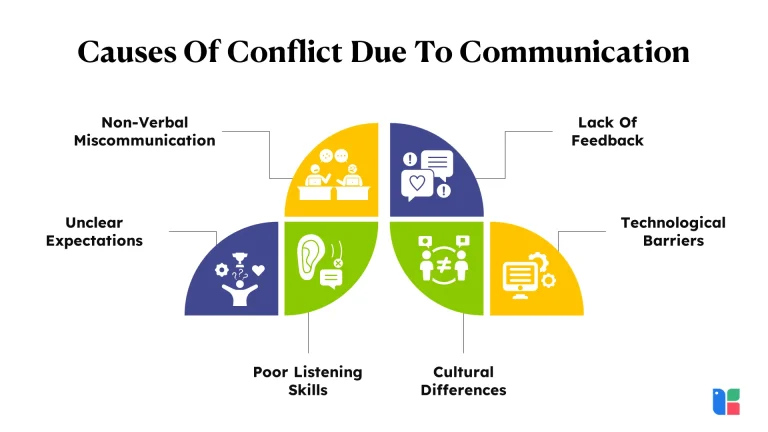Where Can I Work With a Communications Degree
With a communications degree, you can work in various fields such as social media, publicity, journalism, and human resources. The degree equips you with skills in effective communication, leadership, problem-solving, and teamwork.
You have the opportunity to contribute to how corporations and organizations communicate with the public and motivate their employees. Pursuing a communications degree can open doors to a rewarding career in a range of industries. Whether it’s crafting compelling campaigns, managing public relations, or creating engaging content, a communications degree can provide a solid foundation for a successful professional journey.
The versatility and demand for skilled communicators make a communications degree worth considering for those interested in a dynamic and impactful career path.

Credit: online.purdue.edu
Job Opportunities For Communication Graduates
With a communications degree, job opportunities are vast. Graduates can find work in industries such as social media, publicity, journalism, and human resources, where they can apply skills such as effective written and verbal communication, leadership, problem-solving, and teamwork. A communications degree can open doors to a variety of exciting career paths.
Public Relations Specialist
A career as a Public Relations Specialist offers a wide range of opportunities for communications graduates. Here are some key points to consider:
- Building and maintaining relationships: As a Public Relations Specialist, you will be responsible for cultivating relationships with various stakeholders, including clients, media outlets, and the general public.
- Crafting compelling messages: You will develop and execute strategic communication campaigns to deliver key messages and promote brand awareness.
- Media relations: Public Relations Specialists engage with members of the media to pitch stories, arrange interviews, and secure media coverage.
- Crisis management: In the event of a crisis or negative publicity, you will be in charge of developing and implementing strategies to address the situation effectively.
Marketing Manager
A Marketing Manager role is another excellent option for communication graduates. Here’s what you can expect:
- Developing marketing strategies: You will be responsible for creating and implementing comprehensive marketing plans to promote products or services.
- Market research: As a Marketing Manager, you will conduct market research to identify target audiences, analyze consumer behavior, and stay updated on industry trends.
- Managing marketing campaigns: You will oversee the planning and execution of various marketing campaigns, including digital marketing, social media marketing, and traditional advertising.
- Collaborating with cross-functional teams: Marketing Managers work closely with departments such as sales, product development, and creative teams to ensure consistency in brand messaging.
Advertising Account Executive
If you have a passion for advertising, becoming an Advertising Account Executive might be the perfect career path. Here’s what the role entails:
- Client relationship management: You will serve as the primary point of contact for clients, building and nurturing relationships to understand their advertising needs.
- Developing and pitching advertising proposals: As an Advertising Account Executive, you will create and present creative and strategic advertising proposals tailored to meet clients’ objectives.
- Campaign coordination: You will work closely with internal teams, such as creative directors and copywriters, to develop and execute advertising campaigns.
- Monitoring campaign performance: Advertising Account Executives analyze campaign data and metrics to evaluate the effectiveness of advertising efforts and make data-driven recommendations.
Remember, these are just a few examples of the job opportunities available to communication graduates. The field is broad, and your communication skills will be valuable in various industries.
Industries For Communication Professionals
With a communications degree, you can explore various industries such as social media, journalism, and human resources, utilizing your skills in written and verbal communication, problem-solving, and teamwork. Pursuing a career in communications allows you to make an impact on how organizations interact with the public.
Media And Entertainment:
- Public relations: Developing and implementing PR campaigns to enhance the image of individuals, organizations, or brands.
- Journalism: Conducting research, interviewing subjects, and crafting news stories for print, digital, or broadcast platforms.
- Social media management: Creating and managing engaging content across various social media platforms to attract and retain an audience.
- Advertising: Developing creative concepts for advertisements and coordinating their production and placement.
Corporate Communications:
- Internal communications: Developing and implementing strategies to effectively communicate with employees within an organization.
- Public relations: Managing the reputation of a company, handling crisis communications, and maintaining relationships with media outlets.
- Marketing communications: Creating and executing marketing campaigns across different channels to promote products or services.
- Investor relations: Actively engaging with shareholders and potential investors, ensuring transparent and effective communication.
Nonprofit Organizations:
- Fundraising communications: Developing and implementing strategies to effectively communicate with donors and secure financial support.
- Advocacy and public affairs: Crafting messages and campaigns to raise awareness and support for social issues and policy change.
- Volunteer coordination: Managing communication with volunteers, recruiting new volunteers, and organizing volunteer events.
- Grant writing: Preparing proposals and communicating with funders to secure financial support for nonprofit initiatives.
Remember, a degree in communications opens up numerous career opportunities across various industries. From media and entertainment to corporate communications and nonprofit organizations, there is no shortage of options for communication professionals. Find the industry that aligns with your passion and skills, and embark on a rewarding career path in communication.
Career Paths Related To Communications Degree
With a communications degree, you can explore various career paths in social media, journalism, human resources, and more. It equips you with vital skills such as effective communication, leadership, problem-solving, and teamwork. Expand your opportunities in the field of communications and make a significant impact in the way organizations interact with the public.
Social Media Manager:
- A social media manager is responsible for creating and implementing social media strategies to enhance brand visibility and engagement.
- They manage and curate content on various social media platforms such as Facebook, Instagram, Twitter, and LinkedIn.
- They analyze social media data and insights to optimize campaigns and measure success.
- A social media manager interacts with the audience, responds to comments and messages, and creates a positive brand image.
- They collaborate with marketing teams to align social media efforts with overall marketing objectives.
Journalist:
- A journalist reports news stories through various media channels such as newspapers, magazines, TV, or online platforms.
- They research and gather information from credible sources to develop well-written and accurate news articles.
- Journalists conduct interviews, attend events, and investigate stories to provide balanced and unbiased reporting.
- They use their communication skills to convey information in a clear and engaging manner.
- Journalists often specialize in areas such as sports, politics, business, or entertainment.
Human Resources Specialist:
- A human resources specialist plays a crucial role in managing and developing a company’s workforce.
- They handle recruitment processes, including posting job vacancies, reviewing applications, and conducting interviews.
- HR specialists manage employee onboarding, benefits administration, and employee relations.
- They ensure compliance with employment laws and policies and handle employee grievances.
- HR specialists also develop and deliver training programs to enhance employee skills and promote a positive work environment.
Remember, a communications degree can offer various career paths beyond these examples. It provides you with a versatile skill set that opens doors to opportunities in public relations, advertising, marketing, event planning, and more. Explore different industries and find the path that aligns with your interests and goals.
Frequently Asked Questions For Where Can I Work With A Communications Degree
What Would You Do With A Communication Degree?
A communication degree opens up various career opportunities in fields such as social media, journalism, publicity, and human resources. With this degree, you can develop strong communication skills, problem-solving abilities, leadership qualities, and teamwork capabilities. It is a valuable degree for those looking to play a significant role in corporate and organizational communication, both externally with the public and internally with employees.
Whether you prefer writing, public speaking, or managing communication strategies, a communication degree equips you with the skills needed to succeed in these roles. It is a versatile degree that can lead to fulfilling and rewarding careers in a range of industries.
Is Communications A Good Degree To Have?
A communications degree can be beneficial if you want to play a crucial role in how organizations communicate with the public. It also offers opportunities in internal corporate communications to motivate and inform employees. With a communications degree, you can pursue various career paths in social media, publicity, journalism, and human resources.
It enables you to develop essential skills in effective communication, leadership, problem-solving, and teamwork. A degree in communications can open doors to a wide range of industries and positions, making it a valuable investment in your future. Whether you aspire to work in a corporate setting or the media industry, a communications degree can provide you with the necessary skills and knowledge for success.
What Is The Highest Paying Job In Communication Degree In?
A high-paying job in the field of communication degree is a Public Relations Manager. Public Relations Managers are responsible for developing and implementing strategic communication plans to maintain a positive image for their clients or organizations. They oversee media relations, manage public events, and communicate key messages to various stakeholders.
With a communication degree, you can also pursue careers as Advertising Managers, Marketing Managers, or Corporate Communications Managers, all of which have the potential for high salaries. These roles require strong communication skills, creativity, and the ability to understand and navigate complex organizational structures.
By honing your communication skills and gaining experience in the field, you can increase your earning potential in the communication industry.
What Would Be Considered A Career In Communications?
A career in communications encompasses various job roles in areas such as social media, publicity, journalism, and human resources. With a communications degree, you can develop skills like effective written and verbal communication, leadership, problem-solving, and teamwork. This degree allows you to play a vital role in how organizations and corporations communicate with the public, making it a valuable choice.
Additionally, you may be drawn to internal corporate communications, which involve motivating and informing the workforce. Overall, studying for a communications degree can lead to a fulfilling career enabling you to make a significant impact in the field of communication.
Conclusion
A communications degree opens up a world of possibilities for prospective graduates. Whether you have a passion for social media, journalism, or human resources, there are countless career paths available to you. With the skills acquired during your degree program, such as effective communication, problem-solving, and teamwork, you can thrive in a variety of professional settings.
From working in public relations to event planning, the options are endless. Additionally, a communications degree equips you with the ability to adapt to the ever-changing digital landscape, making you an asset in today’s technology-driven world. As you embark on your career journey, remember that your degree is just the beginning.
It is up to you to seize opportunities, network, and continue learning to succeed in this dynamic field. So, embrace the versatility of your communications degree and confidently navigate your path towards a rewarding career.




